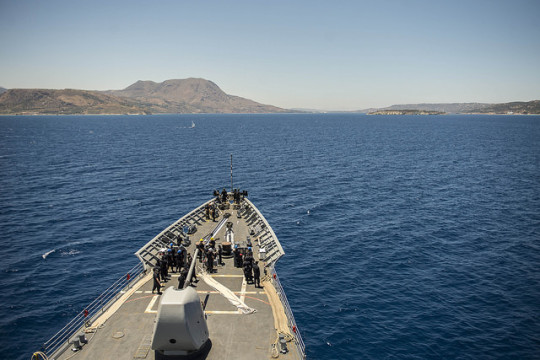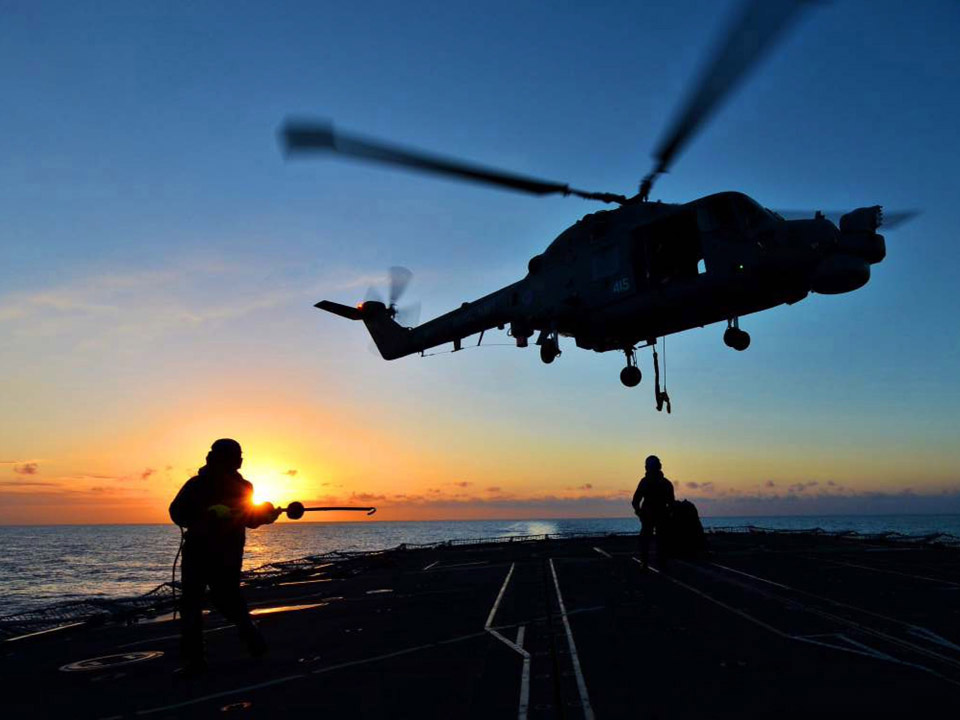Mare Nostrum, meaning ‘our sea’ in Latin, is one of the many cultural, geographic and historical terms that colour the Italian psyche. Pulling on ancient nostalgia when Rome ruled the Mediterranean, along with much of Europe, it implies a prideful vision of what the Mediterranean Sea and surrounding lands used to look like.
The term was largely forgotten in the centuries following the collapse of the Roman Empire until it was resurrected by Italian nationalists following the assent of Fascist Benito Mussolini. More recently, it is perhaps better known as the name of a yearlong naval patrol and rescue operation authorized by the government of Italy.
Among the multitude of security threats facing Europe there are few that exempt Italy. None are greater in 2016, however, than the security, logistic and financial threat of the migrant crisis. For Italy, and other Mediterranean nations, it’s approach to security and homeland security prioritizes pre-emptive action, anticipation of foreign threats, and the movement of people through its borders. Italy’s land borders are relatively secure – bordering France, Slovenia, and Switzerland, however, it’s most porous frontier remains the Mediterranean. As the country’s only ‘Extra-European’ border, the Mediterranean is a crucial economic ‘space’ to the Italian, and European, economy. Italy is one of the most invested, and dependent, states in the Mediterranean. Its location continues to ensure the country remains a transportation, energy and shipping hub for markets in Europe and the Middle East. With its geographical proximity to North Africa, the Middle East and Eastern and Western Europe, the Mediterranean sees 19% of global maritime traffic and 30% of global oil.
In a detailed 2015 interview with EurActiv, the Italian Ambassador to Poland, Alessandro De Pedys, pointed out that Italy’s Presidency of the European Union Council was used to bring the issue of illegal migration to the top of the EU agenda. Coinciding with the height migrant crisis of the summer months, Italy “…began a debate on a structured, organized EU approach to migration – rather than an ad hoc, emergency response, as was the case with the Lampedusa tragedy” according to De Pedys.
With spring on its way, and the unraveling security environment in Libya, a renewed spike in illegal migration across the Central Mediterranean is inevitable. The migrant crisis will pivot to focus on this route between Africa and Europe if recent numbers are any indication. According to the International Organization on Migration, more than twice as many migrants arrived via North Africa (5,300) than in Greece via Turkey (2,600). Just last week, unconfirmed reports suggested up to 500 migrants died after their ship capsized while making the perilous journey from Tobruk, Libya for the Italian coastline.

The insecurity in neighbouring Libya, where ISIS has emerged as a local player, also pushes the migration crisis to new heights. The so-called Islamic State’s buildup represents a threat to migrants, the local population and geopolitical security of the Mediterranean. Italy’s deployment of over 70 special forces and intelligence officers is a clear signal that Rome plans to invest time, resources, and manpower to address the instability of its southern neighbor. Rome is focused on stabilizing the ground security in Libya in order to deter any more illegal migration. Investing assets, alongside coalition partners like the United States, will ramp up over the coming weeks and months as Rome pressures Libyans to accept a U.N backed coalition government in order to preserve the future of the country.
Italy’s maritime security is supported by, and partially reliant upon, the effectiveness of the EU to develop and implement concerted security policy. Multi-level cooperation between domestic and union-level security agencies, such as Europol, will be necessary should Italy wish to protect itself from immediate threat. Cooperation and coordination of enforcement policies on both sides of the Mediterranean are necessary in order to stem the flow of illegal migrants, and illicit weapons and drugs. A policy that protects European and Italian needs, including those of congruent militaries, is the only way that will guarantee Italy a primary role in developing the EU’s migrant strategy. Italy’s foreign policy is often criticized for being ‘too nuanced’ and relying almost exclusively on diplomatic and ‘soft-power’ to achieve its goals. Italy must maintain order on both north and south coasts so it can provide a shared response to the humanitarian and strategic challenges posed by the Mediterranean.
Photos courtesy of the Royal Navy Media Archive and Commander, U.S Naval Forces Europe-Africa, 6th Fleet.




